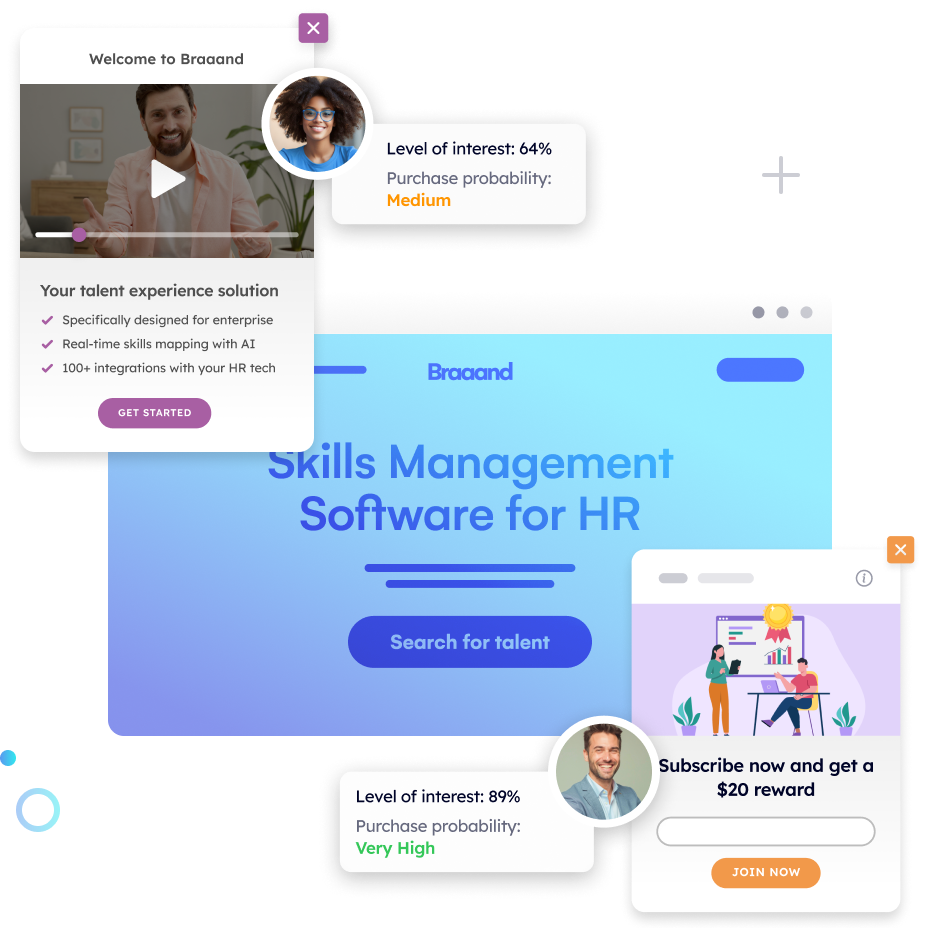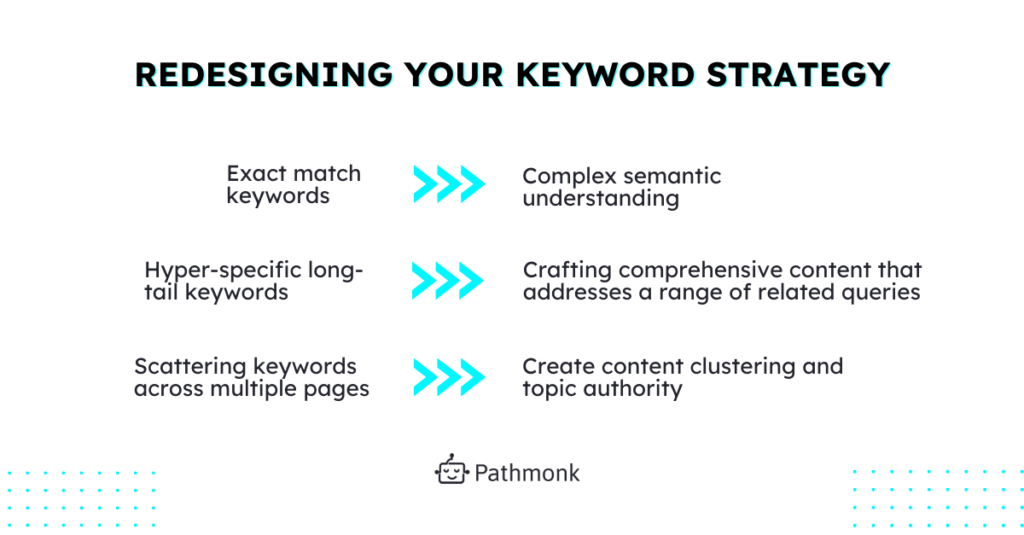
SEO, or Search Engine Optimization, has been the bread and butter of digital marketing for what feels like an eternity—in internet years, that is. For decades, SEO has revolved around a few core practices: finding the perfect keywords, building links, and meticulously tweaking on-page elements.
If you’ve been in the game for any time, you’ve probably spent hours, if not days, poring over keyword research, hunting for backlinks, and optimizing every meta tag and alt text like your ranking depended on it—because it did.
But SEO is on the brink of a seismic shift. And we’ve already stumbled into it with SearchGPT, OpenAI’s newest quest. For those of us who’ve spent years mastering the art of the search algorithm: we can’t ignore it, and we definitely can’t do things the same way we did before.
Adding some hard data to this narrative, recent studies show that AI-driven search technologies are rapidly gaining traction. A report by Allied Market Research projects that the global generative AI market, which includes applications in content creation, is expected to grow from $8.1 billion in 2021 to $200.7 billion by 2031, at a CAGR of 37.3%. So, what does this mean for SEO as we know it? Let’s unpack the future of search in the era of SearchGPT.
Table of Contents
What is SearchGPT?
Built on the same underlying architecture as ChatGPT, SearchGPT leverages advanced natural language processing (NLP) to understand and generate search results in a way that mimics human reasoning. Unlike traditional search engines, which rely heavily on matching keywords and link signals, SearchGPT focuses on understanding the context and intent behind queries.
Let’s break down what this means. Traditional search algorithms, like Google’s, have relied on a mix of keyword matching, backlinks, and user behavior signals to rank pages. They’ve become more sophisticated over the years, but the core principle has remained the same: the more closely your content aligns with specific search queries (in terms of keywords and links), the better your chances of ranking.
However, with SearchGPT, we’re moving towards a model where the algorithm doesn’t just look at what words you’re using, but it understands what you mean and what the user really wants.
For instance, if a user searches for “best running shoes for flat feet,” SearchGPT doesn’t just look for pages that have optimized for “running shoes” and “flat feet” as keywords. It interprets the user’s intent—perhaps they want shoe recommendations based on arch support, comfort, and durability. This approach makes SearchGPT incredibly powerful, as it can deliver more relevant, contextually accurate results that align with the user’s specific needs.
Some people with early access to SearchGPT observed that the engine provided nuanced answers that traditional search engines might overlook. Instead of serving up a list of web pages that merely contain the keywords, SearchGPT presented detailed, conversational answers—almost like having a dialogue with an expert rather than just sifting through a list of links.

This level of understanding is a game-changer because it shifts the focus from traditional SEO tactics—like exact match keywords and link building—to a more holistic approach that prioritizes user intent and contextual relevance. It’s no longer about showing up in search results; it’s about being the right answer to a question, in the most precise and meaningful way possible.
The Potential Impact of Search GPT in Organic Traffic
Organic traffic has been the lifeblood of many websites for years, but recent trends indicate a worrying decline. According to a study by SparkToro, nearly 65% of Google searches ended without a click in 2023, a clear sign that users are increasingly finding what they need directly on search engine results pages (SERPs), without ever visiting a website.
SearchGPT is set to amplify this decline in organic traffic. By offering users more precise, contextually relevant answers directly within the search interface, it reduces the need for users to click through to individual websites, meaning a significant organic traffic loss.
This shift fundamentally changes the landscape of organic search. Instead of relying on traditional organic traffic sources, marketers will need to adapt to a world where search engines increasingly satisfy user queries without generating as many clicks to third-party sites.
For websites, this means that ranking on the first page of SERPs might no longer guarantee a steady stream of traffic. Even if your content is displayed prominently, the increasingly rich answers provided by AI could reduce the incentive for users to click through. As this trend continues, websites will need to evolve their strategies to both capture traffic and convert those users that do come their way.
But, just as AI came to change the SEO game, it can also become your ally.
Overcome Organic Results Decline With AI-Powered CRO
With organic traffic becoming harder to secure, it’s more important than ever to ensure that visitors who do land on your site have an excellent user experience and are effectively guided towards conversion.
With fewer visitors, each one becomes more valuable, and your website must be optimized to make the most of every interaction. Personalized experiences are the best way to guarantee higher conversion rates and seamless user experience.
Pathmonk takes your website experience to the next level, offering personalized experiences designed to what the user is searching for. By showing what each visitor needs with the perfect timing, you can expect an average growth of 50% on your conversion rates.
Increase +180% conversions from your website with AI
Get more conversions from your existing traffic by delivering personalized experiences in real time.
- Adapt your website to each visitor’s intent automatically
- Increase conversions without redesigns or dev work
- Turn anonymous traffic into revenue at scale

So how can Pathmonk fix your organic results loss?
- AI-powered personalization
Pathmonk’s AI engine dynamically adjusts the website experience to match individual user preferences. This ensures that visitors encounter the most relevant experiences, making them more likely to convert. For example, a returning visitor might see different promotions compared to a first-time visitor, enhancing the relevance of the content they are shown.
- Behavioral insights and analytics
The platform provides comprehensive insights into user behavior, helping businesses understand how visitors interact with their site. This includes detailed analytics on where visitors drop off in the conversion funnel, allowing for targeted improvements. Pathmonk’s predictive analytics can forecast user behavior and suggest proactive optimization strategies.
- Easy integration and setup
Pathmonk is designed to integrate seamlessly with existing websites and e-commerce platforms. Its plug-and-play setup means businesses can start optimizing their conversion rates quickly without needing extensive technical support. This ease of use allows for real-time updates and continuous optimization without significant downtime or resource allocation.
- Cookieless technology
Pathmonk’s cookieless technology ensures user privacy while still providing personalized experiences. This is increasingly important as privacy regulations become stricter and users become more concerned about their data security. By using advanced machine learning algorithms, Pathmonk can personalize user interactions without relying on cookies, ensuring compliance with privacy laws while still optimizing conversion rates.
How to Adapt Your SEO Strategy in the SearchGPT Era
With SearchGPT taking the reins, SEO and content creation is evolving in ways that are both exciting and challenging.
1. Focus on creating content that sounds human
While AI tools have been around for a while, SearchGPT’s capabilities puts AI-generated content to the test. This doesn’t mean everyone should stop using AI to generate content, but the challenge now is ensuring that this AI-generated content aligns with user intent and delivers real value, rather than just ticking boxes for SEO purposes.
This also opens space to other content opportunities that are even more aligned with the purpose of SearchGPT: user-generated content, user reviews, debates in forums, etc. These tools provide other sources of content that highlight human touch, making it even more relevant to both SearchGPT and other search engines.
But before we get too carried away with the idea of AI doing all the heavy lifting, it’s important to remember the value of maintaining a human touch. Yes, AI can generate content, but it’s the human element—insights, creativity, and emotional intelligence—that often makes content truly resonate with an audience. In the SearchGPT era, the best approach is likely to be a hybrid one: using AI to assist with content creation while ensuring that the final product is polished by human expertise.
2. Anticipate your visitors’ needs
SearchGPT’s deep understanding of nuanced queries means that content needs to be more sophisticated. It’s not enough to just answer a question; you need to anticipate the user’s next question and provide a seamless, comprehensive experience that addresses their needs holistically. This shift is likely to favor content that is not only well-written but also structured in a way that guides the user through their search journey.
3. Rethink your keyword strategy
One of the most profound changes that SearchGPT brings to the table is how it redefines keyword strategy. The days of obsessing over exact match keywords might be coming to an end. SearchGPT’s ability to grasp the context and intent behind search queries means that marketers need to think beyond just stuffing pages with the right words.
- The shift from exact match keywords to semantic understanding is where this change is most evident. SearchGPT doesn’t just look for the specific words in your content—it understands the meaning behind those words. For example, if someone searches for “how to fix a leaking faucet,” the AI is smart enough to understand that content covering “repairing a dripping tap” or “plumbing tips for small leaks” is relevant, even if those exact phrases aren’t used. This semantic understanding requires marketers to focus more on the overall topic rather than individual keywords.
- Long-tail keywords—those hyper-specific phrases that we’ve relied on to capture niche search traffic—are also undergoing a transformation. With SearchGPT, these long-tail queries are still important, but the way we approach them will change. Instead of creating separate pages for every possible long-tail variation, the focus should now be on crafting comprehensive content that addresses a range of related queries. SearchGPT’s understanding of nuance means it can match a broader range of queries to a single, well-rounded piece of content.
- Content clustering and topic authority are becoming increasingly crucial in this new SEO landscape. SearchGPT rewards content that is thorough and well-organized around a central theme. Instead of scattering keywords across multiple pages, marketers should aim to build content clusters—interlinked groups of content that collectively cover a topic in depth. This approach not only helps with ranking but also positions your site as an authority on the subject, which is something SearchGPT is likely to prioritize when delivering results.

4. Pay attention to in-website optimization
As we move into the SearchGPT era, traditional on-page SEO practices are going to need a significant update. Elements like metadata, alt text, and schema markup are still relevant, but they will need to be optimized with AI in mind. This means focusing more on how these elements contribute to the overall user experience and less on simply ticking off an SEO checklist.
Site structure and internal linking will also take on new importance. With SearchGPT’s ability to understand context and intent, a well-organized site that’s easy to navigate and deeply interlinked will likely perform better. The goal should be to create a seamless user experience that allows the AI to easily understand and categorize your content.
Mobile-first indexing and core web vitals remain crucial, but they, too, will be influenced by AI. SearchGPT will likely prioritize sites that not only load quickly and look good on mobile but also provide a smooth and intuitive user experience. In other words, technical SEO is evolving to focus more on the user’s overall experience rather than just the technical specs.
5. Rethink your backlink strategy
Backlink strategies, once the cornerstone of SEO, are also set to evolve. With SearchGPT’s sophisticated understanding of content, the focus is shifting from the quantity of backlinks to the quality and relevance of those links. SearchGPT is more likely to prioritize content that is linked to by authoritative and contextually relevant sources, rather than content that simply has a large number of backlinks.
Building topical authority is becoming more important than ever. Instead of chasing backlinks from every possible source, marketers should focus on becoming recognized authorities in their niche. This means creating content that is so valuable and authoritative that it naturally attracts high-quality backlinks.
Leveraging automated AI backlink software can streamline this process by identifying relevant linking opportunities and ensuring a strategic approach to backlink acquisition. These tools use AI to analyze domain authority, content relevance, and competitive link-building strategies, helping marketers secure high-quality placements.
Social signals and brand mentions are expected to play a larger role in this new landscape. As SearchGPT continues to evolve, it may place more emphasis on the overall online presence of a brand, including social media activity and brand mentions across the web. This shift underscores the importance of a comprehensive digital marketing strategy that goes beyond traditional SEO tactics.
The Role of Data and Analytics with SearchGPT
With the rise of SearchGPT, SEO metrics as we know them may need to be redefined. Traditional metrics like keyword rankings and backlink counts might take a backseat to new metrics that better capture user engagement and content relevance.
AI-driven analytics tools will be crucial in this new environment. These tools can help marketers understand how SearchGPT is interpreting and ranking their content, allowing for more precise optimization. The ability to analyze and adapt to real-time data will be key to staying ahead of the competition.
Adapting to real-time data and predictive insights is another critical aspect of SEO in the SearchGPT era. As AI continues to evolve, marketers will need to become more agile, leveraging real-time data to make informed decisions and stay ahead of trends. This requires not just new tools but also a shift in mindset—moving from a reactive approach to a proactive one.
Understand how your prospects behave (in real time)
- Visualize how visitors move across your website
- Identify drop-offs and friction points instantly
- Turn journey data into actionable insights with AI


